The Pledge of Allegiance: A battle over patriotism
The Pledge of Allegiance, an oath we are taught in kindergarten, and have repeated in classrooms everyday since.
February 24, 2022
“I pledge allegiance to the flag of the United States of America, and to the republic for which it stands, one nation under God, indivisible, with liberty and justice for all.”
The Pledge of Allegiance. Little choice is given to students if they want to recite it or not. It is taught at such a young age, it just becomes a daily habit. The meaning and the history of the words are lost.
“Some might argue that a blind devotion in which we carry out this mass chanting to a flag every single day is not really patriotism, particularly if it’s done every single day, and expected of you and done at school. And that it loses any value that it has because it’s rote. It is some sort of rote activity that you do and the words come out of your mouth and you’re thinking about something else. You’re not even thinking about the words that you’re saying anymore, and it loses any power that it has to unify,” said Dan Rypma, a U.S. History teacher at Fossil Ridge High School.
The Pledge of Allegiance was created in 1892 by Francis J. Bellamy as a way to incite nationalism. It began to gain traction in schools as a response to an increase in immigration. Americans looked to the pledge to instill patriotism and create a sense of a national and assimilative identity.
With the influx of immigrants, Americans began to compete with them for jobs. This competition began to instill dislike, hatred, and racial suspicion towards immigrants. The goals of the pledge such as instilling American nationalism did nothing but to further perpetuate these sentiments of xenophobia towards immigrants.
When the pledge became mandatory in schools, it was to imbue the students with a sense of nationalism and patriotism. However, the exact opposite is often achieved.
“I am a patriotic person,” said Todd Forkner, an English teacher at Fossil. “I made my pledge of allegiance to America and for me, if I make a promise, if I say something like a pledge or take a vow, that’s locked in. I’m going to do that. I don’t need to say it every single day to remind myself of the commitment that I made. And to me, that is the part I resist.”
If students are forced to say the pledge every day, it can spark opposition to the patriotism they are expected to display. This can even result in possible resentment toward their country. Choosing whether or not to say the pledge is something students should be able to come to on their own terms.
Another common issue is that so many students have become desensitized to the pledge. They do not know the meaning or the history behind it. The only thing they do know is that it is something they are expected to say every day.
When asked about why he stands for and says the Pledge of Allegiance, student Tyler Benedix said, “I guess it’s because it makes me think of what America stands for.” However, at first, he thought maybe he did not have a reason. He spent time thinking about what the pledge meant to him instead of looking at it as something he simply recited every day.
“We expect kids to do it every day and build patriotism, but they have no idea how it came to be or any of the history behind it, or even what the words mean and what it’s intended to do in the first place.
— Dan Rypma
Rypma also said that, “What I do believe is that there is a legitimate criticism of doing it every day, it completely loses any value that it’s supposed to have. I tend to fall more on the side of special occasions at certain times where we feel that we can actually put our minds fully into that thing, that can be a very powerful thing to do, and a good reminder of our country, and where we are, and that we are part of this country, and that the United States has beauty and value and honor and virtue, and there’s something in that.”
If the Pledge of Allegiance is supposed to have so much meaning and symbolism attached to it, saying it every day begins to make it perfunct and the meaning begins to cheapen. Many students only say it because they believe it is something they are expected to do.
Choosing to stand or not stand for the pledge has also become a controversial issue in the last couple of years. If you choose not to say the Pledge of Allegiance, you can immediately be criticized and labeled as someone who is unpatriotic.
Rypma said that, “It has literally happened in my class where a student has decided not to stand up and I’ve had other students make snide comments to them, or say things like ‘stand up!’ or ‘are you an American?”’
Whether someone chooses to stand for the pledge, or not, it does not mean that they support or are against the U.S. Students should have the opportunity to make their own choices regarding if they want to say it or not.
As of 2004, Colorado state law declared that, “Each school district shall provide an opportunity each school day for willing students to recite the pledge of allegiance in public elementary and secondary educational institutions. Any person not wishing to participate in the recitation of the pledge of allegiance shall be exempt from reciting the pledge of allegiance and need not participate.”
“This is why of course, when we do the pledge of allegiance at Fossil, we simply say ‘please be respectful for the pledge of allegiance,’ and that’s all. They can’t force anyone to do it,” says Rypma.
However, even though recitation of the pledge is not mandatory, there becomes, “. . . issues of peer pressure and how sometimes people can be very judgmental and not very accepting of people with different opinions,” Forkner said. “I think the choice to not say the Pledge of Allegiance when there are so many other students in the classroom doing it, is an uncomfortable thing for those students.”
Peer pressure is something which can be extremely uncomfortable to most people. When the entire class and the teacher are saying the pledge, there is almost an unsaid expectation that everybody should recite it. Even if a student does not want to say the pledge, they may still do it out of a desire to not attract any negativity or backlash.
If a student chooses not to say the pledge, Rypma said that, “. . . you have to also make sure that there are no consequences for that person. Either direct consequences or some kind of undue burden placed on them. Whether that be the disapproval of an instructor or the disapproving comments of classmates.”
“That’s part of what being in a free country is,” Forkner said. “…People have differences of opinion.”
There are valid reasons on both sides considering whether or not someone decides to say the Pledge of Allegiance. However, what many do not understand is that the recitation of the pledge is completely optional.
In a country where freedom of speech is one of the most important values, students are not truly given the opportunity to decide whether or not they want to say the Pledge of Allegiance. Access to education about the history and meaning behind the pledge would allow students to make their own informed decision about reciting the pledge.
“We expect kids to do it every day and build patriotism, but they have no idea how it came to be or any of the history behind it, or even what the words mean and what it’s intended to do in the first place. That seems kind of like an oversight that we could correct,” says Rypma.



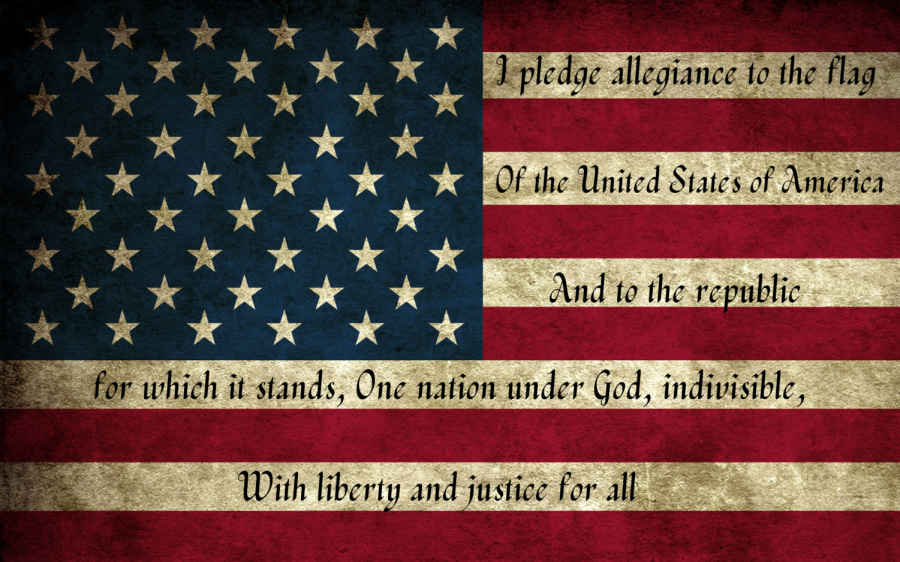



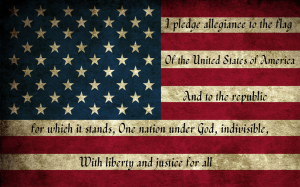




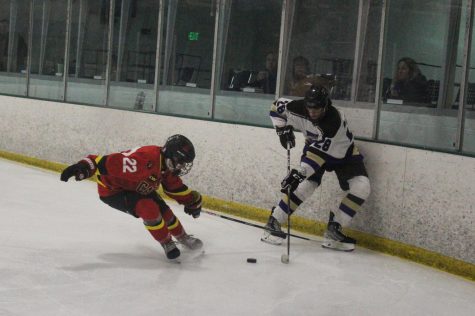
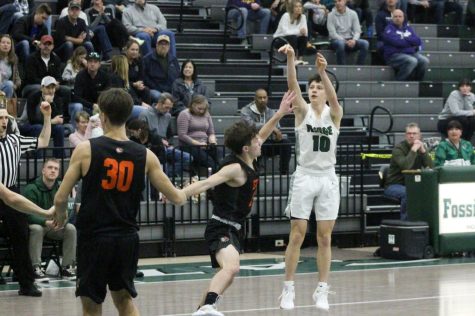


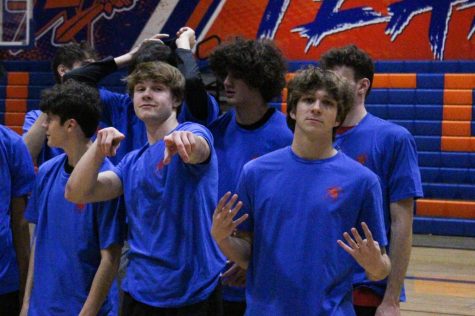
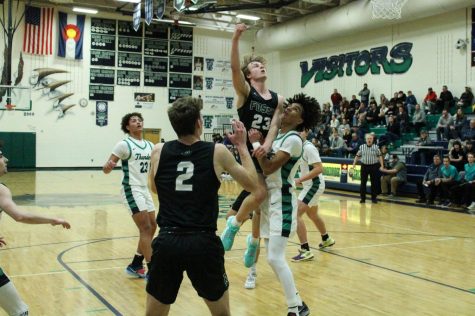
Lori Cox Juma • Jul 14, 2023 at 5:33 am
Observe and create programs during National Patriotism Week and the problem is solved.